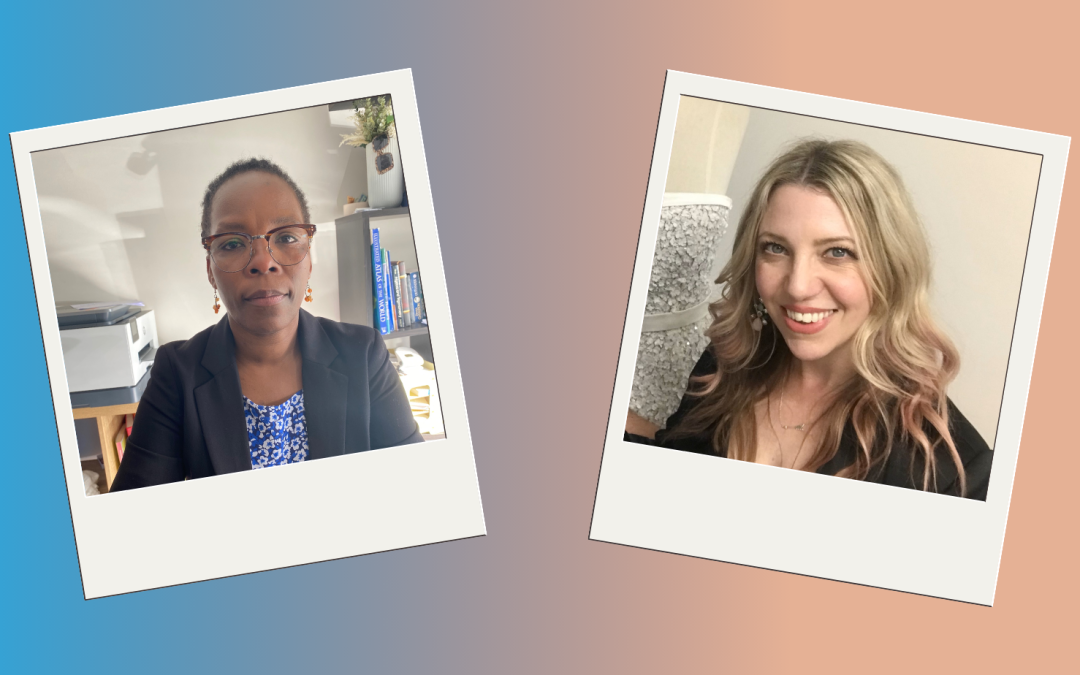When Kevina Kezabu decided to sit the 2024 accreditation exam, she knew there was one part of her editing toolkit she’d need some help with. So she turned to the IPEd Mentoring Program. Kevina was paired with Melanie Dankel AE, an editor with over 20 years of experience.
We spoke with Kevina and Melanie about their experience working together and their advice for getting the most out of a mentorship.
Kevina
I chose to pursue mentorship as I prepared for my IPEd examination, realising that I needed guidance specifically in writing style sheets. While I had a wonderful and supportive exam study group, I still felt the need for personalised assistance in an area where I felt less confident. My experience in academic editing had not required me to create these for my clients, so I knew it was crucial to seek help.
I was incredibly fortunate to find a mentor in Melanie who was both knowledgeable and supportive, precisely what I needed at that moment. Prior to our mentorship, I often felt overwhelmed and questioned my decision to take the exam. However, Melanie provided me with invaluable one-on-one support in writing style sheets, alongside continuous encouragement for my exam preparation. She shared her own experiences and provided various resources for practice that enriched my learning process.
What I appreciated most about working with Melanie was our shared practice exercises and the opportunity to review each other’s work. Each time we examined my practice style sheet, she expressed confidence in my improvement. “Yes, I think this is good!” she would enthusiastically affirm before giving a lot of constructive feedback. I also asked numerous questions – some may have seemed basic – but she never showed any impatience. Given that this was my first time taking the exam, I truly felt privileged to have Melanie’s guidance, along with the support of my study group. I genuinely believe I could not have navigated this journey without them.
Reflecting on my mentorship experience, I can’t think of how we could have approached it differently. I encountered a confident and knowledgeable editor who not only accepted me but also believed in my potential. What more could I possibly have needed?
For those considering mentorship, my advice is to recognise that individuals seek guidance for various reasons. The key is to understand your own needs and approach the mentorship with an open heart and mind.
Kevina Kezabu holds a PhD in environmental education and works as an academic editor for higher degree research (HDR) students. In her spare time, she enjoys reading and tending to her garden.
Melanie
When I think back to how editors were traditionally trained in-house, mentoring was a big part of that. You learnt on the job by watching what other editors did, and got lots of feedback along the way. I feel like we have lost some of that rich learning in recent times as editorial departments have slowly been outsourced. The IPEd Mentoring Program is one of the hidden gems of IPEd membership as it enables editors to tap into the rich knowledge within the editing community. I really wanted to support that and work with other editors to hone and refine their skills.
Elizabeth Beach AE, chair of the Mentoring Standing Committee, was extremely helpful in describing the program and how I could support it. I was worried about putting my hand up if I couldn’t fulfil every area that a mentee wanted to learn about, but so far, I feel I have been able to offer value. I find that the mentoring conversations are often quite free flowing, so what you thought you were going to cover might actually end up being a discussion about something totally different. I especially love it when my mentees teach me something new!
I’ve mentored two editors now and both were absolute stars who wanted to get the most out of the experience. They were super committed to learning. Feeling like I could support them on their journey was the best feeling and helped reinforce that, hey, maybe I do know what I am doing.
Being really open about your expertise and letting the mentee direct where the conversations go is a great starting point. Also, don’t feel you need to be an expert in every area as it’s just not possible.
Melanie Dankel AE has been an editor for over 20 years. She started at Lonely Planet before working as a freelance editor. She currently works for JBI Evidence Synthesis, a health care journal affiliated with the University of Adelaide. Melanie has been involved with IPEd her entire career and is currently a member of the Editors SA committee and the SA director on the IPEd Board.
Whether you’re returning to the profession after time off, just beginning your career, looking to brush up on your skills or move into a new area of editing, the IPEd Mentorship Program can help. You’ll be paired with an experienced and approachable mentor who can provide guidance and share experiences to help you develop as an editor.
Find out more about the IPEd Mentoring Program and apply today!

